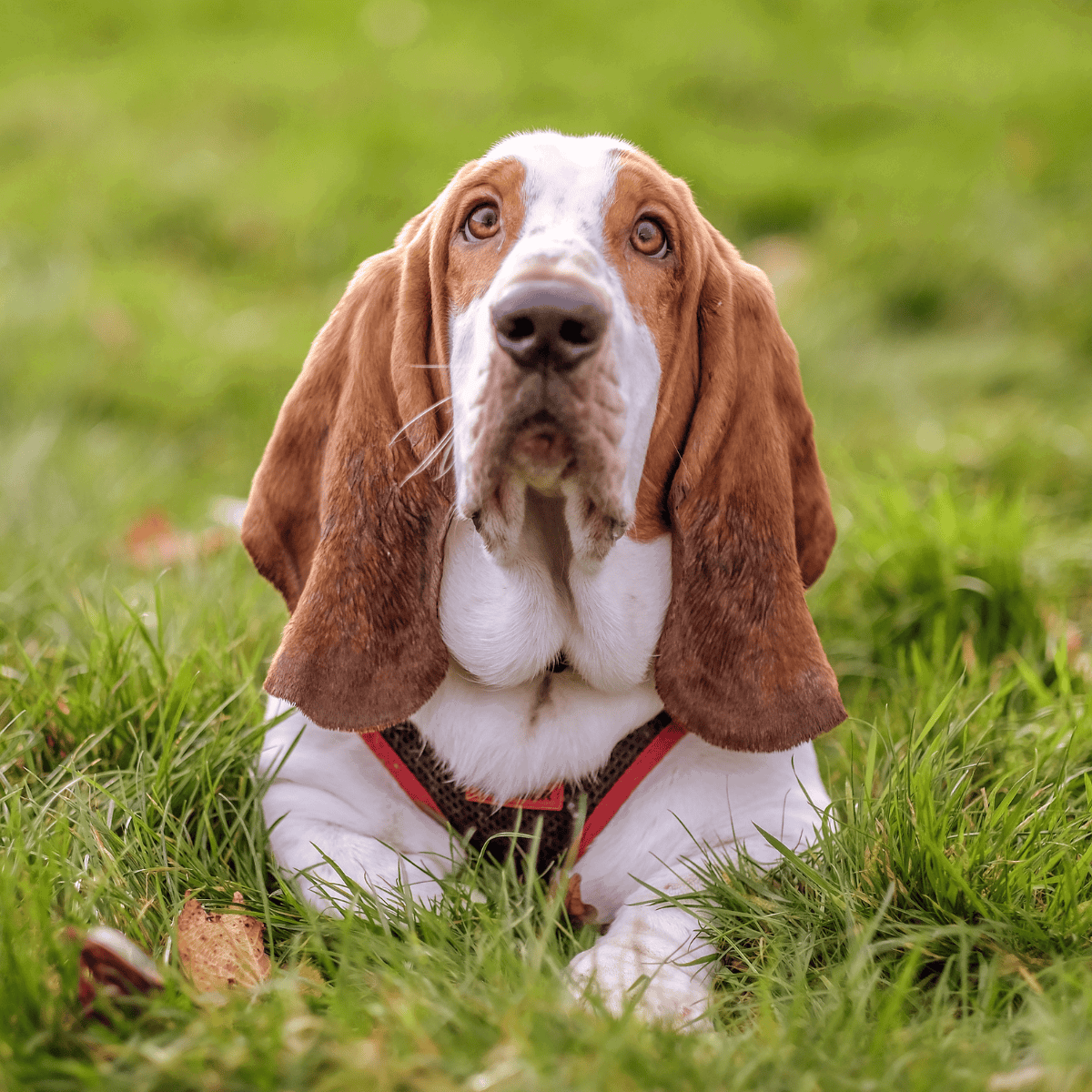
Basset Hound
Shortcuts
The Basset Hound, celebrated for its distinctive appearance and friendly temperament, captivates dog lovers with its long ears and soulful eyes. Despite having short legs, these dogs are strong and enduring, known for their slow, steady gait. Their exceptional sniffing abilities make them outstanding trackers, showcasing a talent that is almost unmatched in the canine world.
At home, Basset Hounds are calm and friendly, proving loyal companions. While they may show stubbornness, their affectionate demeanor makes them a treasured part of any household. Their distinctive appearance and loving heart have endeared them to many.
Breed Overview

Height
Up to 15 inches
Weight
40 – 65 pounds
Lifespan
12 – 13 years
Colors
Black, white, brown, chocolate, tan
Suitable for
Almost any family or individual looking for a companion
Temperament
Loyal, affectionate, loving, friendly, amenable, caring.


Height
Up to 15 inches
Weight
40 – 65 pounds
Lifespan
12 – 13 years
Colors
Black, white, brown, chocolate, tan
Suitable for
Almost any family or individual looking for a companion
Temperament
Loyal, affectionate, loving, friendly, amenable, caring.

The Basset Hound is known for its long ears and a distinctive, droopy face. It has a strong sense of smell and was initially bred to hunt small game, particularly rabbits.
Characteristics
Energy

Health

Sociability

Trainability

Lifespan


Enjoying this read?
We publish this content for free to generate interest in our Premium members' area. By subscribing, you can ask the writer any questions related to pet care and this article, get access to 100+ Premium Pet Care Guides and go Ad-Free with DogFix Premium for $2.99.
Health Conditions
Basset Hounds are prone to genetic conditions. Regular check-ups and a healthy diet can help manage genetic predispositions. Following best practices in feeding schedules and health screenings can significantly improve a Basset hound’s quality of life and lifespan.
Minor Conditions
- Glaucoma
- Intervertebral disc disease
Serious Conditions
- Bloat
- Hypothyroidism
- Thrombopathia
- Von Willebrand’s Disease
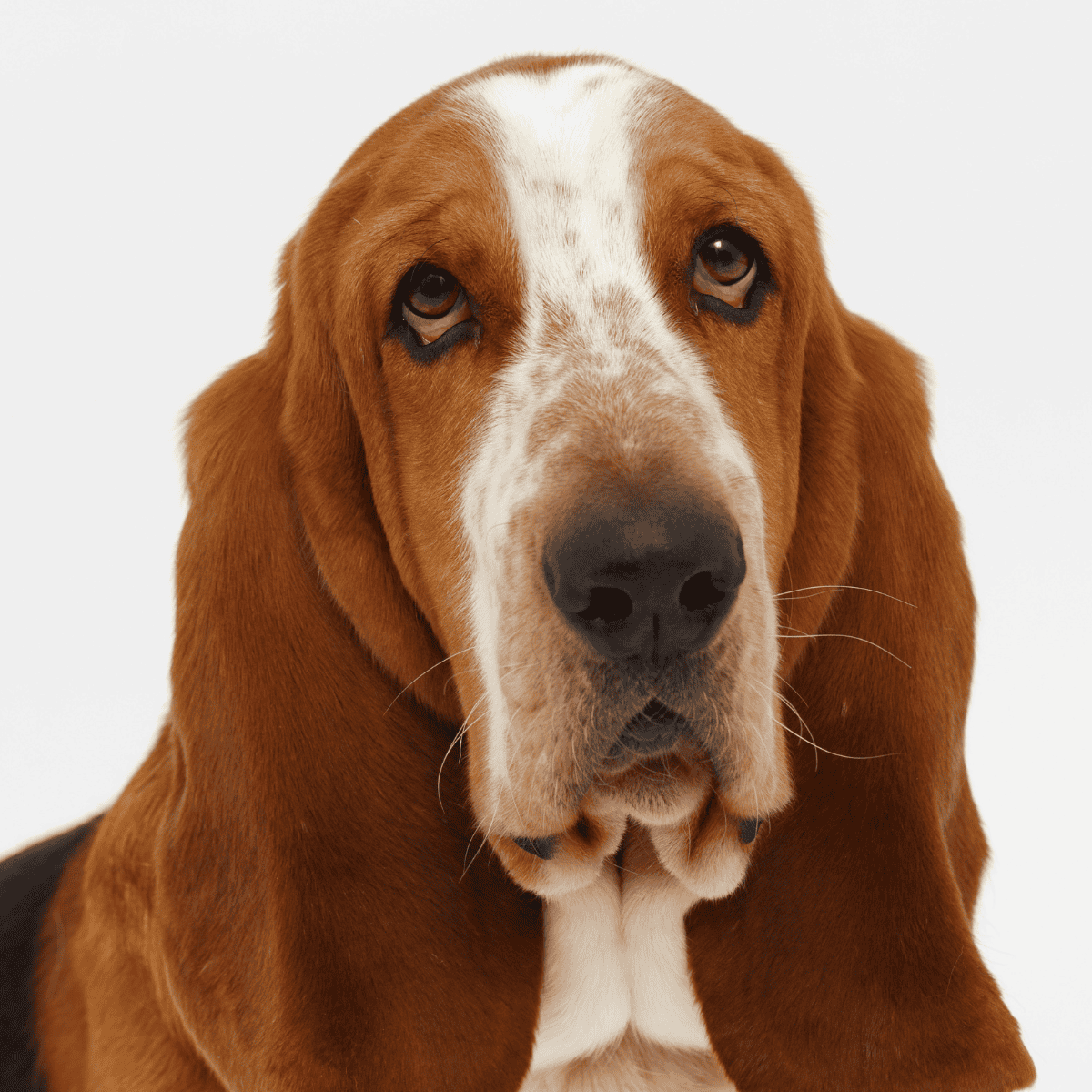
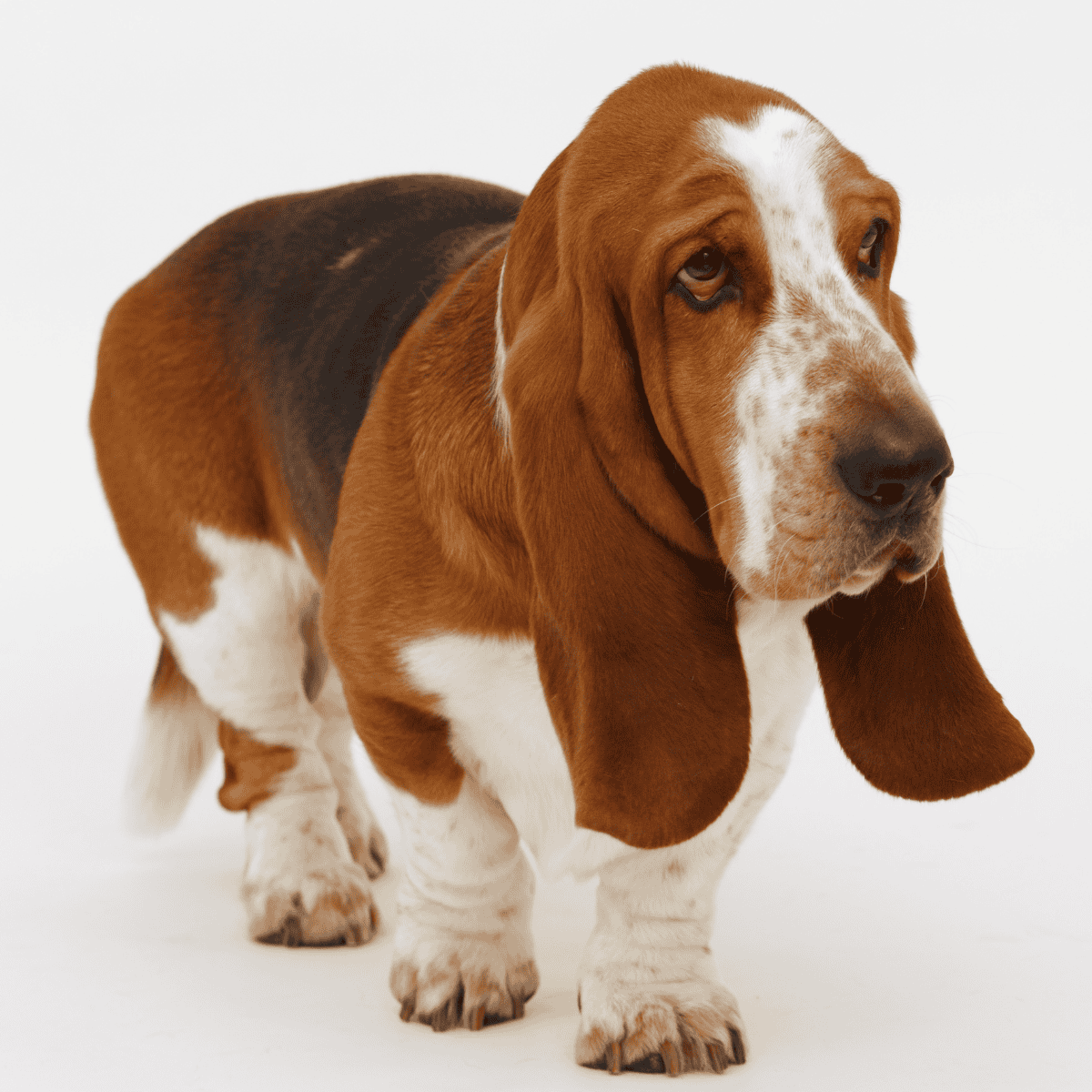
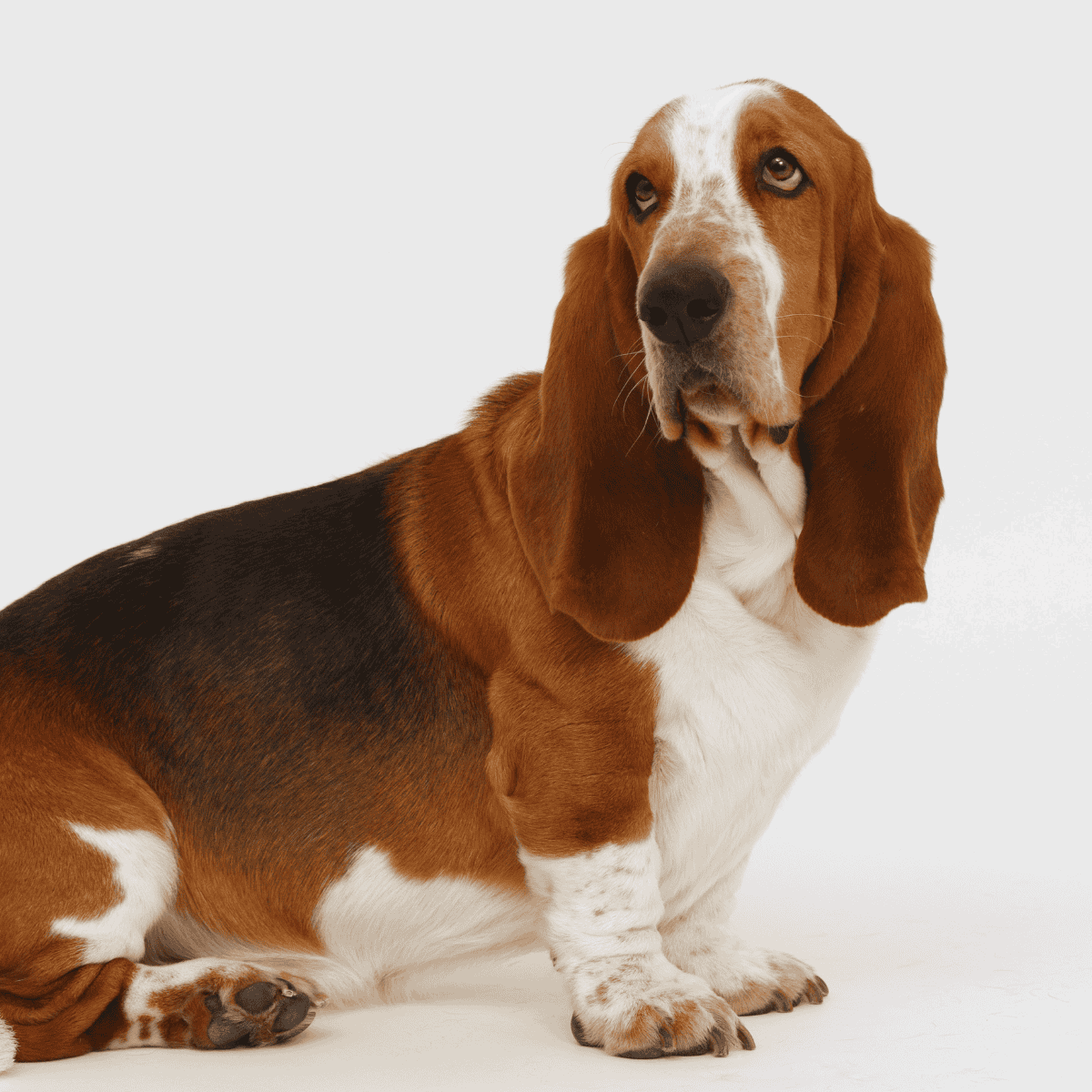
Basset Hound Puppies
Basset Hound puppies are adorable bundles of joy known for their distinctive droopy ears and soulful expressions. These puppies are born with a keen sense of smell, making them natural scent hounds. Their playful and friendly demeanor makes them excellent companions for families and individuals alike.
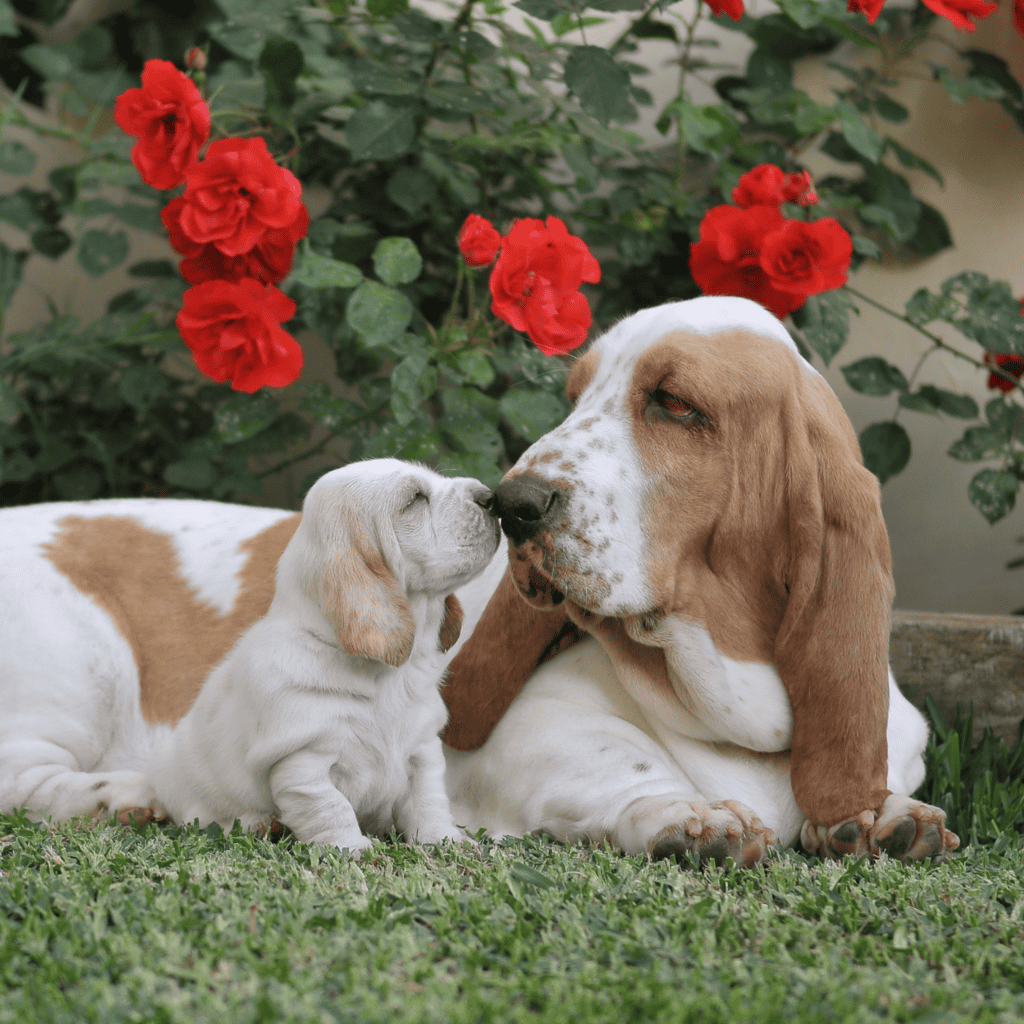
As they grow, Basset Hounds develop a laid-back personality, often enjoying long naps and leisurely strolls. With their affectionate nature and loyalty, Basset Hound puppies quickly become beloved members of any household. Their charming quirks and gentle disposition ensure endless entertainment and companionship.
Temperament & Intelligence Of The Basset Hound
Basset Hounds are known for their gentle, friendly nature, making them great family pets. They form strong bonds, aren’t aggressive, and enjoy the company of children and other pets. Their relaxed demeanor means they’re often found lounging around the house, yet they can be stubborn, requiring patient, consistent training.
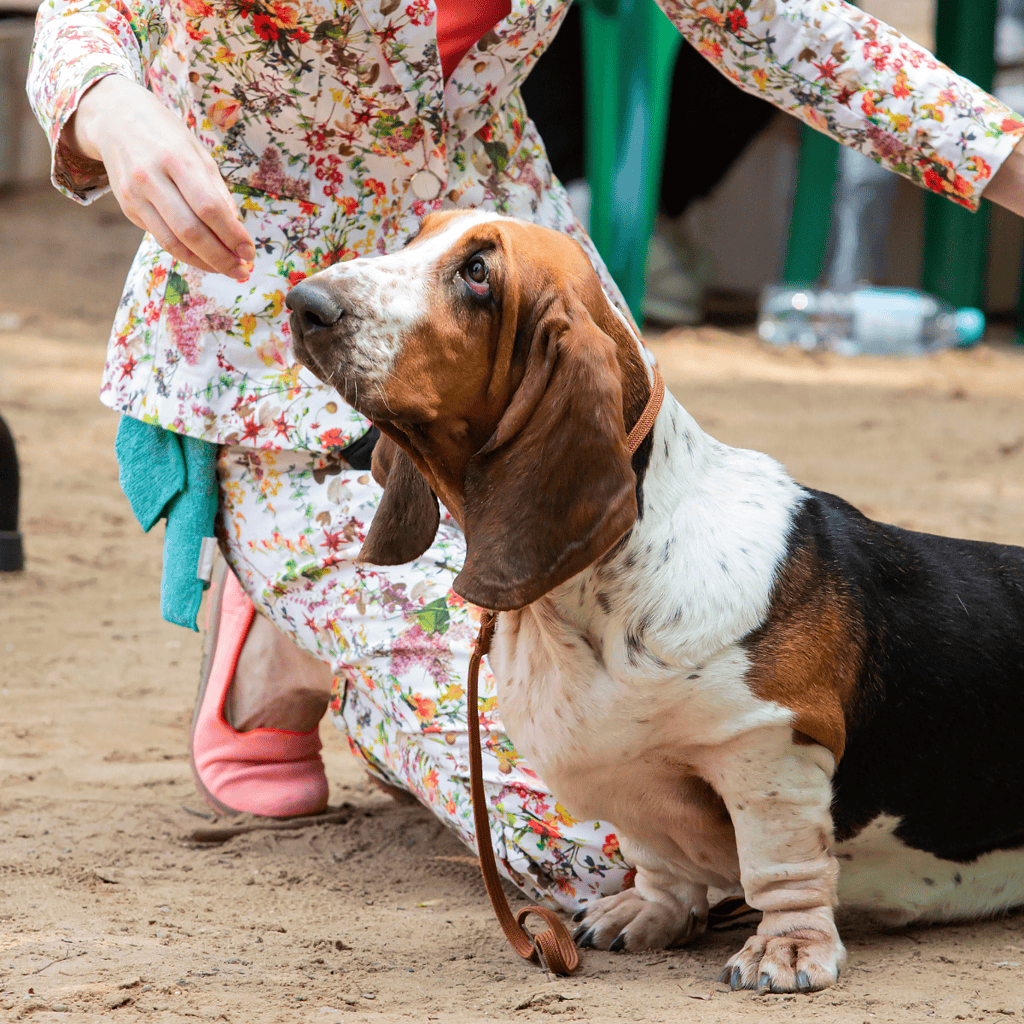
While their distinctive bark is part of their charm, they’re also intelligent, especially in scent-based problem-solving, necessitating creative training techniques to keep them engaged.
Are These Dogs Good For Families?
Basset Hounds are perfect for families. They love spending time with kids and adults alike. They enjoy playing and relaxing, quickly settling for calm moments at home. Despite their easygoing nature, they need encouragement to stay active, as their lack of exercise could lead to weight issues.
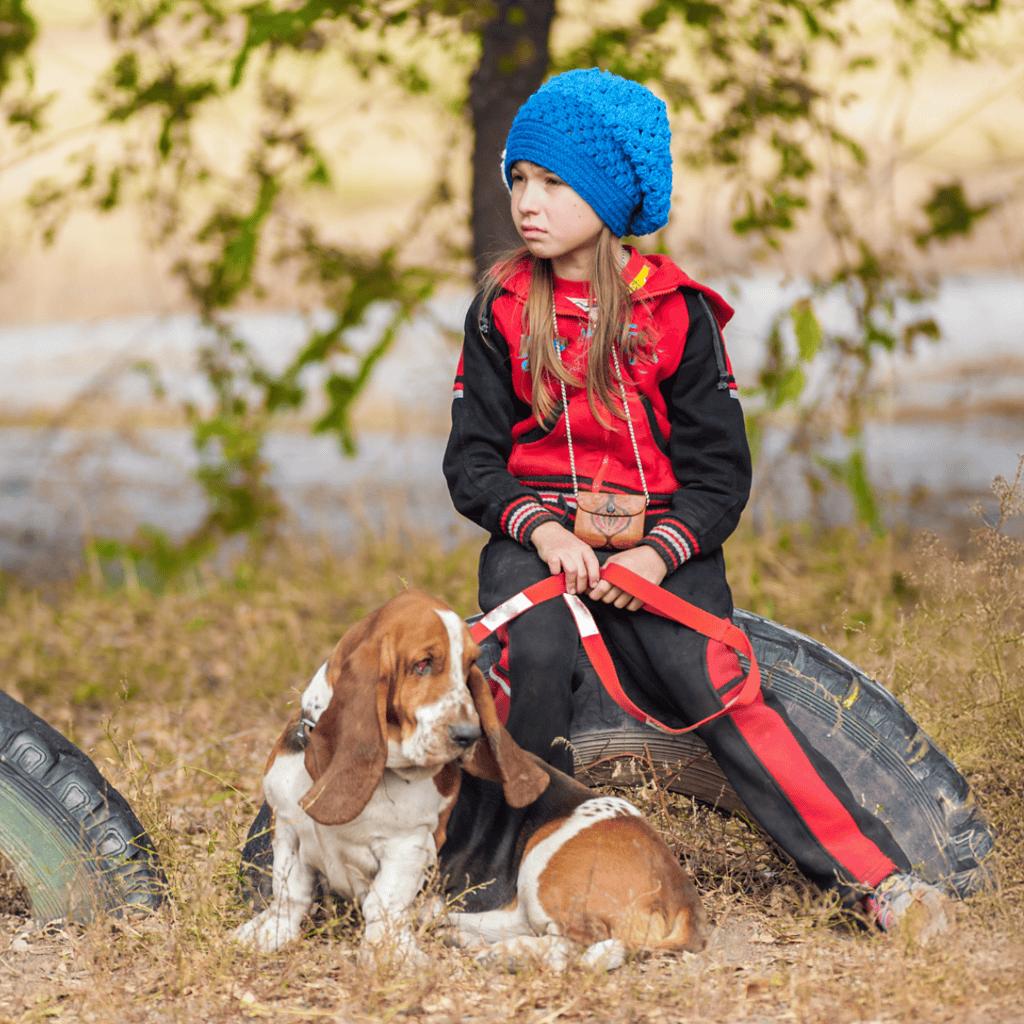
Weighing up to 80 pounds, Basset Hounds’ substantial size means that small children need careful supervision to prevent accidents. They relish in playtime and are excellent with children, but their tendency towards laziness and potential for weight gain must be managed with regular exercise.
Does This Breed Get Along With Other Pets?
Bred for pack hunting, Basset Hounds naturally get along with other dogs, making them friendly pets. Early socialization helps them form strong bonds with canine companions, and their communication within groups is effective.
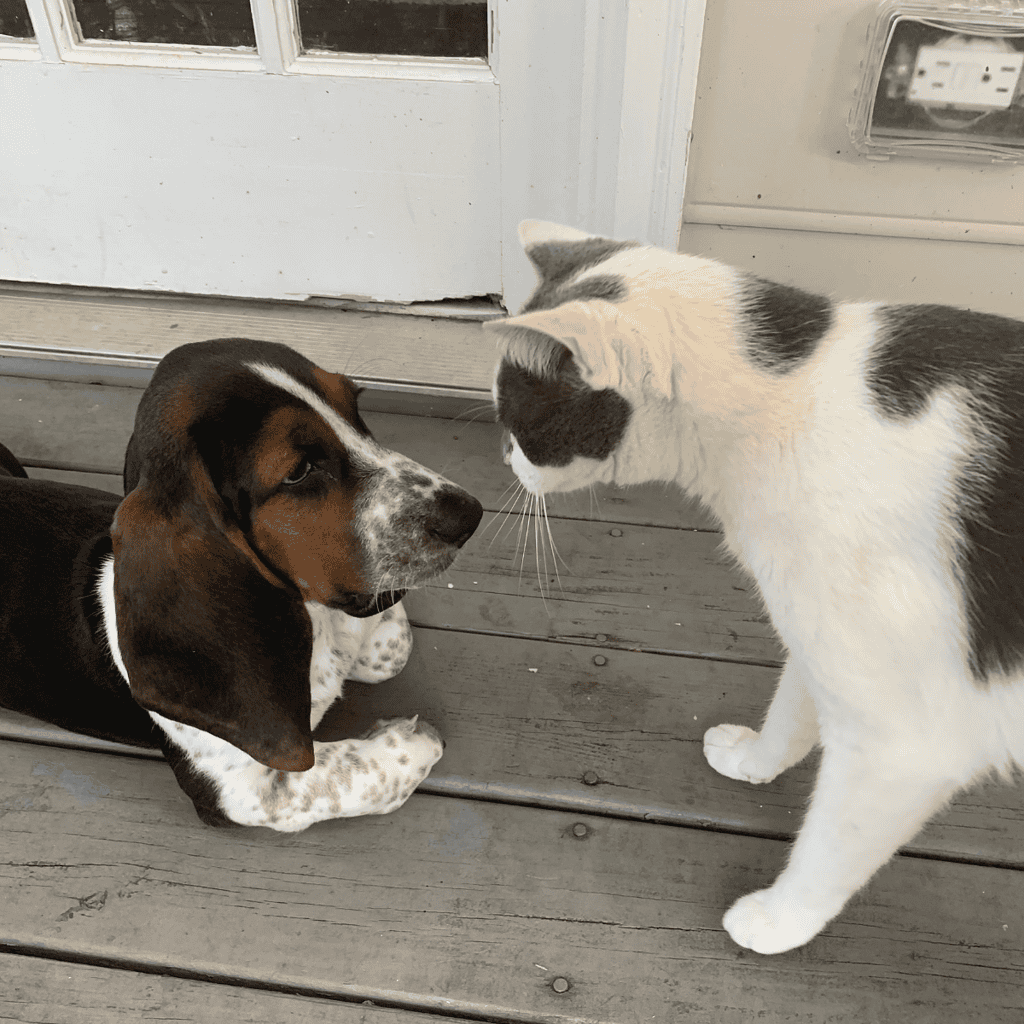
Despite their hunting background, Basset Hounds usually don’t chase small animals, living peacefully with cats and other small pets. While supervision is advisable, they’re typically not aggressive towards non-canine companions.
Food & Diet Requirements
A balanced diet is essential for the Basset Hound to support its sturdy frame and avoid weight-related health issues. High-quality dry kibble is crucial, with the aim of about 2 cups daily, adjusted for the dog’s weight and activity level.
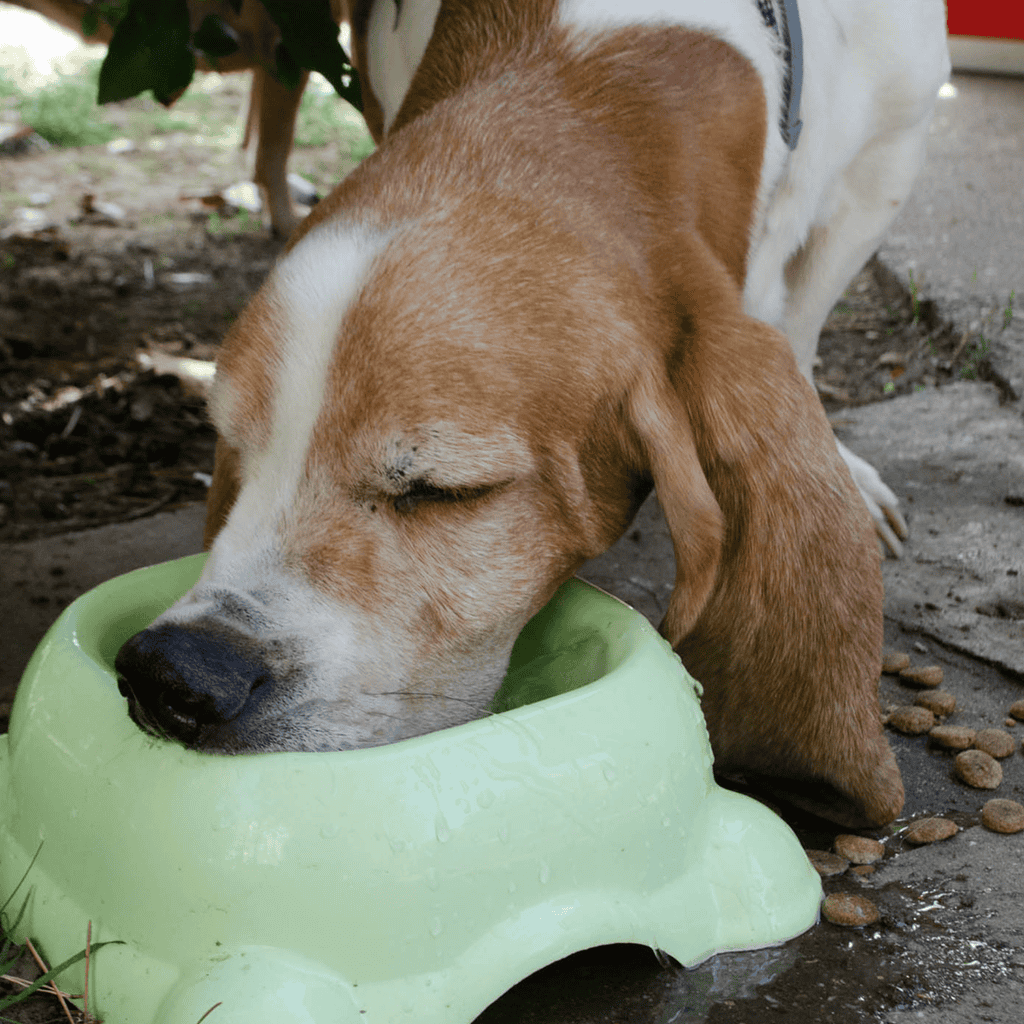
When mixing wet and dry food, reduce quantities to prevent overfeeding. Treats should be minimal and considered in the daily calorie intake to avoid weight gain.
Exercise
Basset Hounds require daily activities to remain healthy and content. Even if some prefer lounging, they must walk for around 45 minutes daily for weight control and mental stimulation. Agility classes and stamina-based sports enhance their fitness and strengthen their bond with owners, making such activities beneficial.
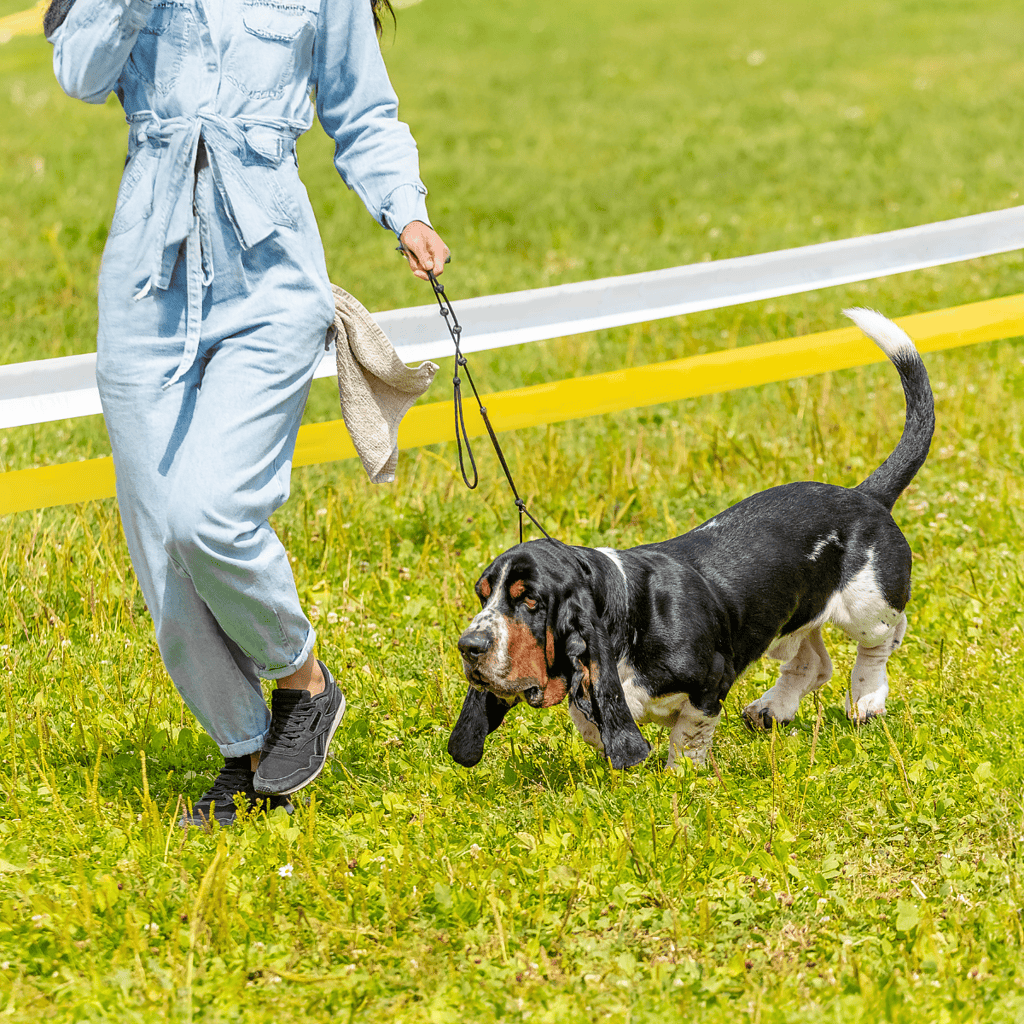
Mix their routine with short play sessions, interactive toys, and sniffing games to keep Basset Hounds from getting bored. Striking a balance between physical and mental exercises is key. Regular, varied activities help prevent common health issues like obesity, ensuring they lead a fulfilling life.
Training
Basset Hounds are intelligent and respond well to fun, engaging training sessions. They perform best with short, game-like activities, using treats for positive reinforcement. Consistency and proper timing enhance their focus and eagerness to learn.
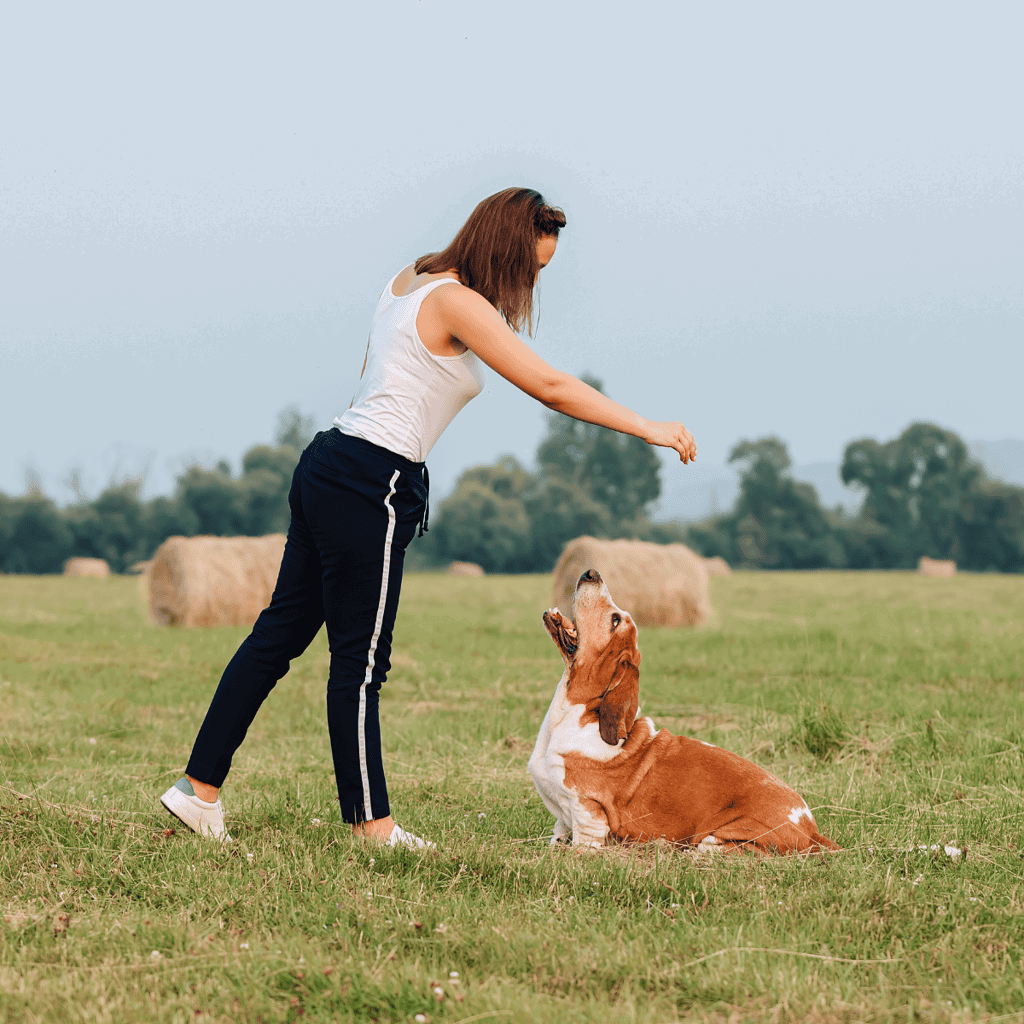
On the flip side, they might show laziness and stubbornness, which can be managed with patience and encouragement. Incorporating interactive games like fetch or hide-and-seek during training sessions not only keeps them engaged but also helps them joyfully reinforce commands.
Grooming
Basset Hounds shed despite their short coats, but weekly brushing can manage this and keep homes clean. Their water and dirt-repellent coat rarely needs baths. Special care for long ears is essential to prevent infections, requiring regular cleaning.
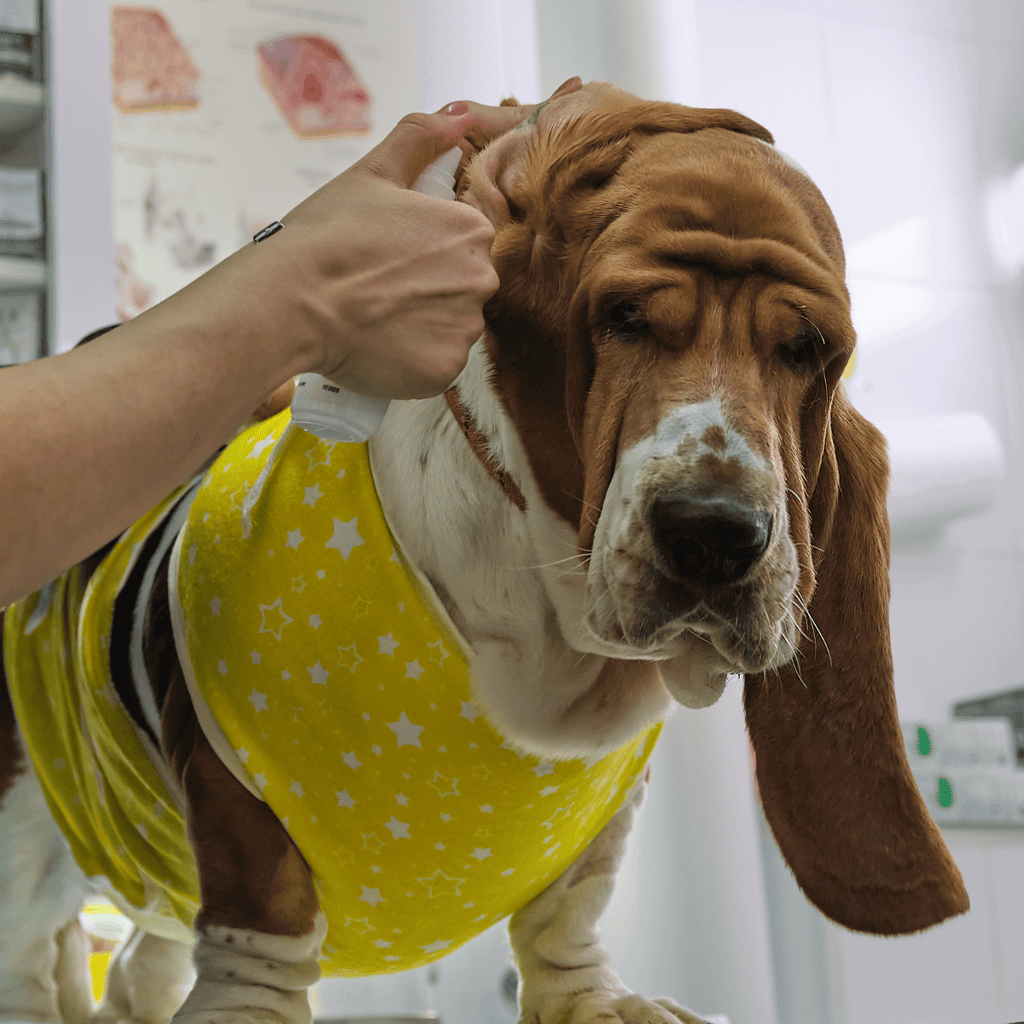
Starting dental care early for Basset Hounds is vital, as well as brushing their teeth a minimum of three times weekly, ideally daily, to keep their dental health in check. This routine becomes more manageable as they age, ensuring their overall well-being.
Male Vs. Female
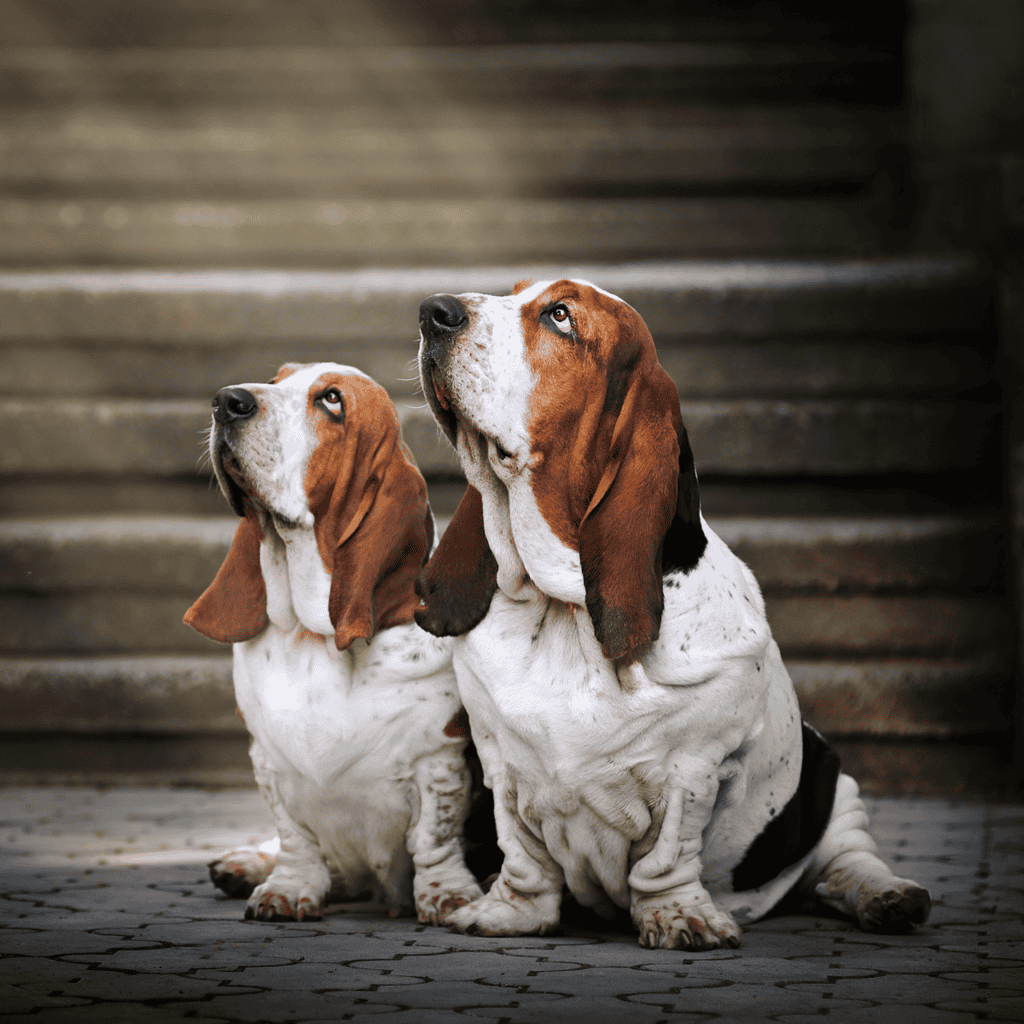
Basset Hounds display gender-specific traits; males grow slightly larger and are more playful, while females often exhibit greater independence. This independence makes females more challenging to train. Still, both male and female Basset Hounds are considered suitable for novice owners due to their friendly and gentle nature, making them excellent family pets.
Fact #1: Bassets Have More Bone Per Pound Than Any Other Breed
Basset Hounds have a unique physical structure. Despite being less than 15 inches tall, they are surprisingly heavy due to their dense bone structure. They are low to the ground but can weigh up to 70 pounds, which sets them apart from other breeds.
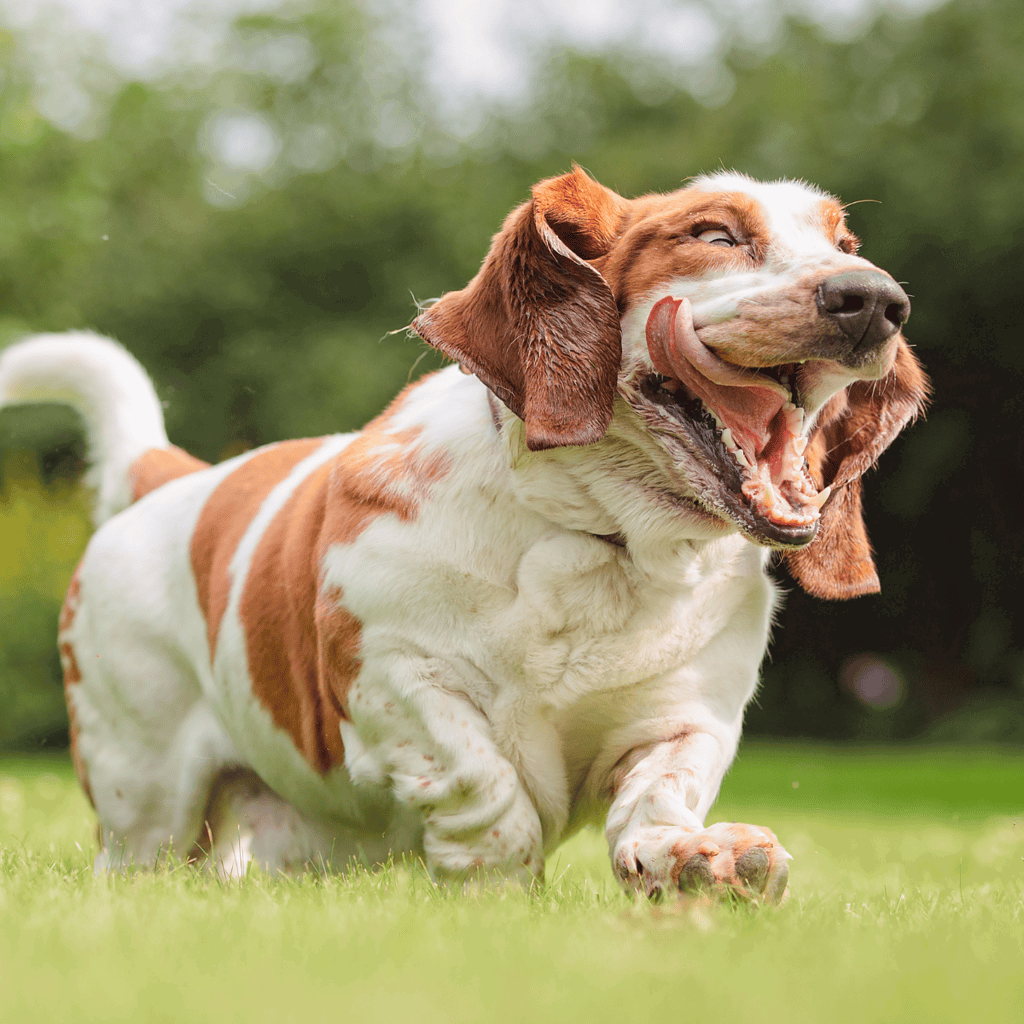
Carrying an adult Basset can be a challenge due to their hefty build. Because of their bone-heavy structure, owners should be mindful of their dog’s physical needs, ensuring they maintain a healthy weight and receive proper support.
Fact #2: Their Spines Can Be Prone to Damage
Basset Hounds’ long bodies are prone to spinal strain, significantly heightened by extra weight. Preventing overfeeding is crucial, as is limiting jumping from heights, especially in their vulnerable puppy years. Regular, moderate exercise and vet check-ups are pivotal in maintaining their spinal health.
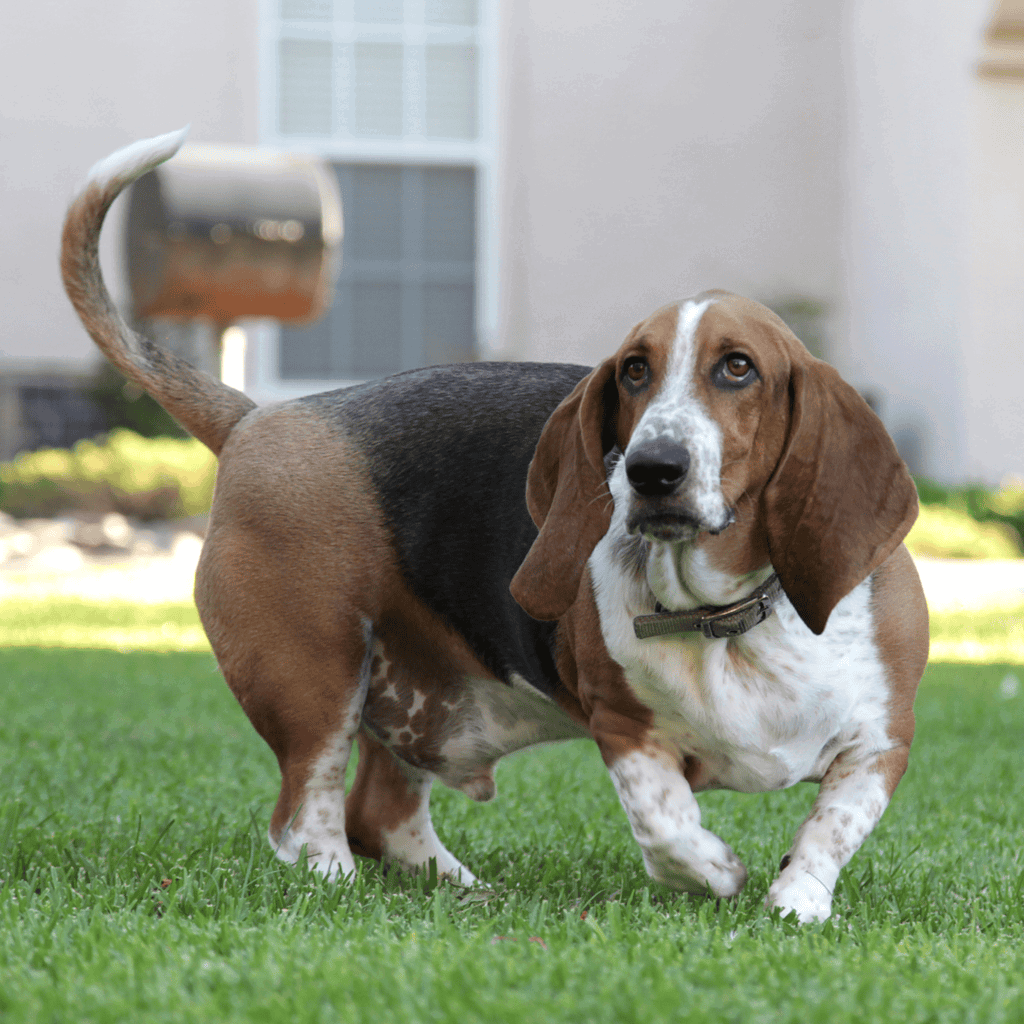
Adopting certain practices is essential for the well-beingwell-being of Basset Hounds. Maintaining a balanced diet and employing ramps for car access can prevent undue stress on their spines. Ensuring consistent veterinary care further aids in the early detection and management of potential issues.
Fact #3: Basset Hounds Are Great at Scent Work
With their near-bloodhound-level sense of smell, Basset Hounds excel in tracking thanks to their long ears and droopy skin, which enhance their olfactory capabilities. They shine in AKC Scent Work and Tracking events.
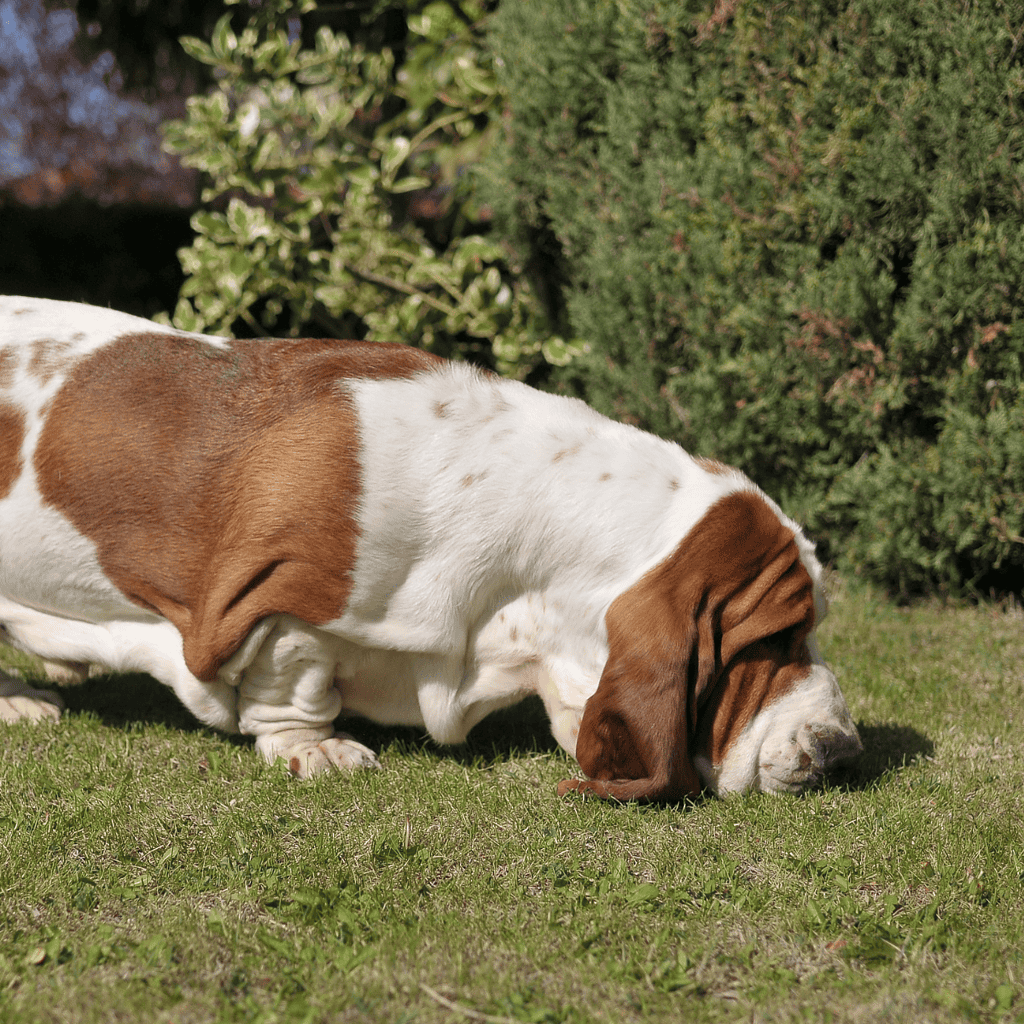
Their ability to follow long scent trails makes them stars in Basset Hound Field Trials and invaluable in search and rescue missions. With proper training, they adeptly locate hidden items or specific smells, demonstrating impressive scent work dedication.
Final Thoughts
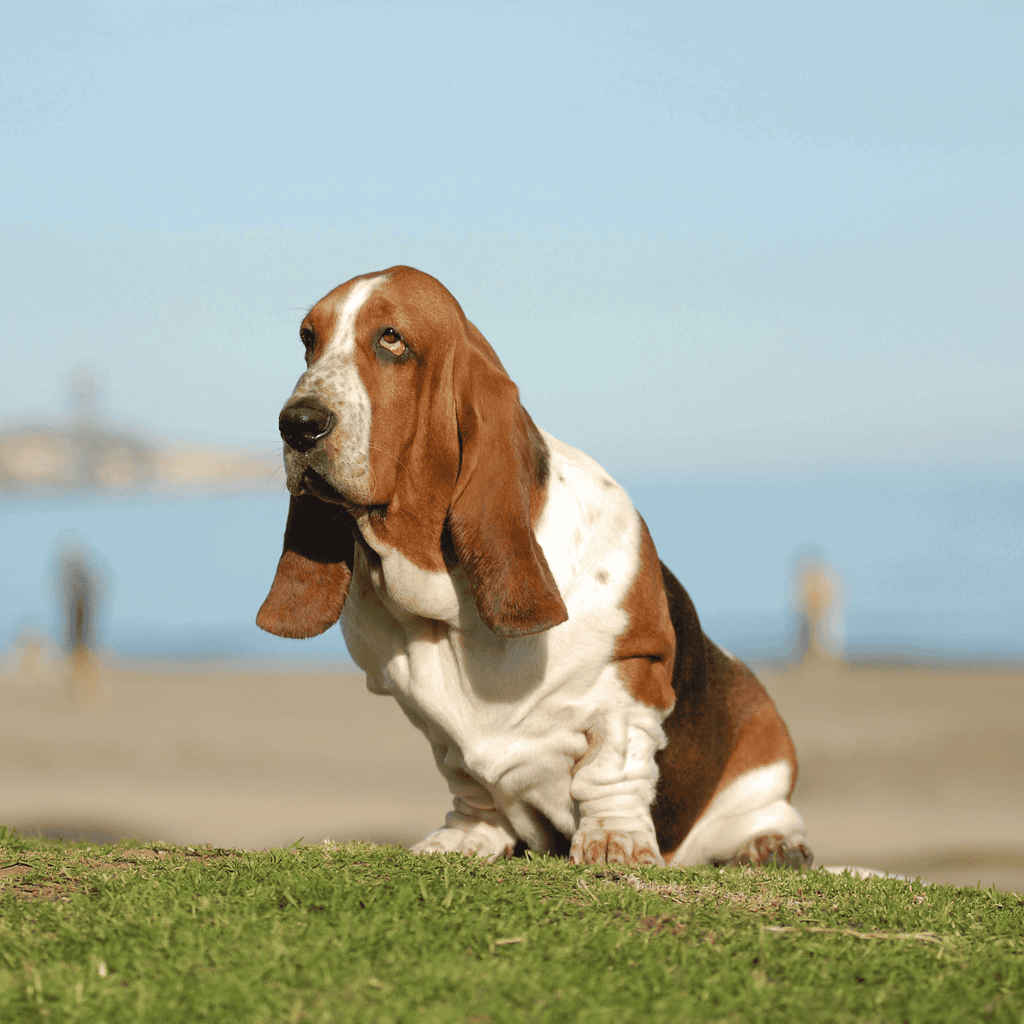
The Basset Hound is an excellent and adaptable breed, celebrated for its impressive scent-tracking skills and as a loving companion. They are lovely with children, seniors, and other pets. Bassets need consistent grooming and attention, and their balanced energy levels make them a fantastic choice for countless families.
Frequently Asked Questions
What is the average weight range for a Basset Hound?
Basset Hounds typically weigh between 40 to 65 pounds. Males generally weigh more than females.
What personality traits are typically seen in Basset Hounds?
Basset Hounds are known for their friendly and easygoing nature. They are loyal and good with families, often displaying a gentle disposition.
How long do Basset Hounds generally live?
Basset Hounds have an average lifespan of 12 to 13 years. With proper care, some may live slightly longer.
What are the standard size dimensions of a Basset Hound?
Basset Hounds usually stand about 11 to 15 inches tall at the shoulder. Despite their short stature, they have a long body and sturdy build.
What variety of colors do Basset Hounds come in?
Basset Hounds come in various colors, including tri-color, black and white, brown and white, and red and white. Some may have different patterns and markings.
How often do Basset Hounds require grooming?
Basset Hounds should be groomed regularly, typically once a week. Their short coat requires minimal maintenance, but their long ears need frequent cleaning to prevent infections.

Didn’t find what you need? Use the search!
Search our database of over hundreds of posts with up-to-date information from our experts and veterinarians.

